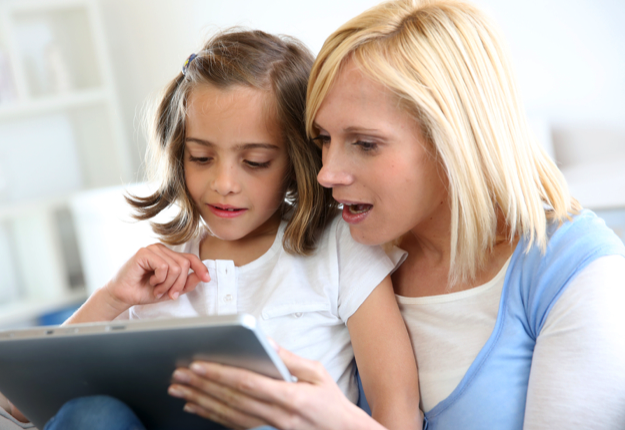Harry Potter and Doctor Who star John Hurt CBE is behind an online safety campaign urging us to be safe online and not to become a social experiment.
To highlight the dangers of the Internet and how easy it is for others to watch our online activities, Harry Potter and Doctor Who star John Hurt CBE has taken part an online safety video created by the Respect Network.
The video concentrates on the highly topical issue of privacy online and what scares us most about the Internet; that our personal information is being tracked, watched and monitored by any number of people we don’t know.
To watch the video and find out what emotion it stirs in you – click here.
The video is deliberately controversial to bring the very real issue of privacy online to front of mind, as in an increasingly digital world it is important to know what your children are up to online and be confident that they’re safe.
Knowing what your kids are up to when they’re online these days can be a real challenge.
With 24/7 access to devices like iPads, smartphones and laptops, our families are much more vulnerable than ever before to privacy pirates and bad guys on the Internet.
Worryingly, online and social media privacy breaches are becoming more frequent, so it’s really up to you, their parents, to make sure your kids understand that no matter how much fun it is – the Internet can also pose a very real threat.
But before you pull your hair out at this daunting task, Respect Network has come up with a few simple tips to help protect your family online, giving you more time to do the things you love doing, with – or without – your kids!
Think before you post.
Encourage your children to think before they post anything online. Is it a piece of information that they’d share with all their school friends?
A good guide for this is if they wouldn’t do something in real life, they shouldn’t do it online.
Be online with them
Spend time looking at things online together.
Let your child see what you’re looking for on the web and discuss the results you’re getting.
For example, if you’re booking a holiday online – show your child the websites you’re using, how the search function works, and let them have a go at searching too.
Establish basic rules around sharing
Next time you feel like sharing an update on one of your social channels, talk your child through your thoughts first.
Make sure they understand that whatever they share exists on the Internet forever and can be altered or shared beyond the people they shared it with.
Have some fun with them too though and let them have a go at posting their own pictures!
Set a time limit on daily Internet use
Kids need structure and guidelines. Whilst they need to develop their online skills it is equally as important to develop socially and physically.
If left to their own devices many kids would spend all day online.
Whilst keeping them out of trouble elsewhere it’s not going to help them grow into well rounded individuals.
Don’t save passwords or money details
Set different passwords for different accounts and make sure you don’t select the ‘remember me’ option. Equally if you use your credit card details online to purchase items, never save your card details to your account.
This way if your child is visiting the same social sites or shops they can’t access your information or purchase anything without specifically asking for your permission.
You don’t want a ute full of toys arriving at your door and a shock credit card bill to boot!
Trust is key
Many children are more tech savvy than their parents and will probably pick up how to use the tools much quicker than you!
Remember to trust them and give them time online alone to play a game or watch a video.
At the same time, make sure they know the difference between an online friend and a real friend and encourage them to never divulge their location, age or any personal details about themselves.
Consider monitoring their activity
Obviously the concern here is the invasion of their privacy.
We’re not suggesting that you snoop through every single one of their interactions online, but for you to keep an eye on their activity and what websites they are using.
The Internet isn’t a private place – everything we post is public. So why should it be OK for everyone else to see your kids online activity but not you?
Technology is inherently part of the world we live in today. We can’t hide children from it, nor can we ban it at home. Instead we need to give kids the knowledge and skills to become tech savvy and ethical digital citizens.
The Cynja
You might also be interested to know that The Cynja, a graphic novel series that uses a new class of superhero to introduce kids to the world of cybersecurity, has become a founding partner of Respect Network. Together they are working towards bringing privacy online. Visit here to find out more.




















-

-
-
ella12 said
- 16 Jan 2018
-

-
-
mom81879 said
- 22 Nov 2015
-

-
-
merlin2012 said
- 01 Jul 2015
-

-
-
smiles said
- 30 Apr 2015
-

-
-
june11 said
- 06 Jan 2015
-

-
-
tulips said
- 25 Dec 2014
-

-
-
mom57808 said
- 12 Dec 2014
-

-
-
mom93821 said
- 30 Oct 2014
-

-
-
cloverstorm said
- 28 Oct 2014
-

-
-
Lov'n'Life said
- 25 Oct 2014
-

-
-
rovermum said
- 20 Oct 2014
-

-
-
chrissyt said
- 18 Oct 2014
-

-
-
rachkap said
- 18 Oct 2014
-

-
-
cherz said
- 17 Oct 2014
-

-
-
mom57522 said
- 17 Oct 2014
-

-
-
aliceou said
- 17 Oct 2014
-

-
-
meedee said
- 17 Oct 2014
Post a comment2:31 pm
8:11 pm
12:51 am
2:16 pm
10:46 pm
9:31 pm
7:44 am
7:45 am
9:59 pm
7:47 pm
9:11 am
9:49 pm
2:08 am
8:42 pm
8:41 pm
1:59 pm
12:46 pm
To post a review/comment please join us or login so we can allocate your points.